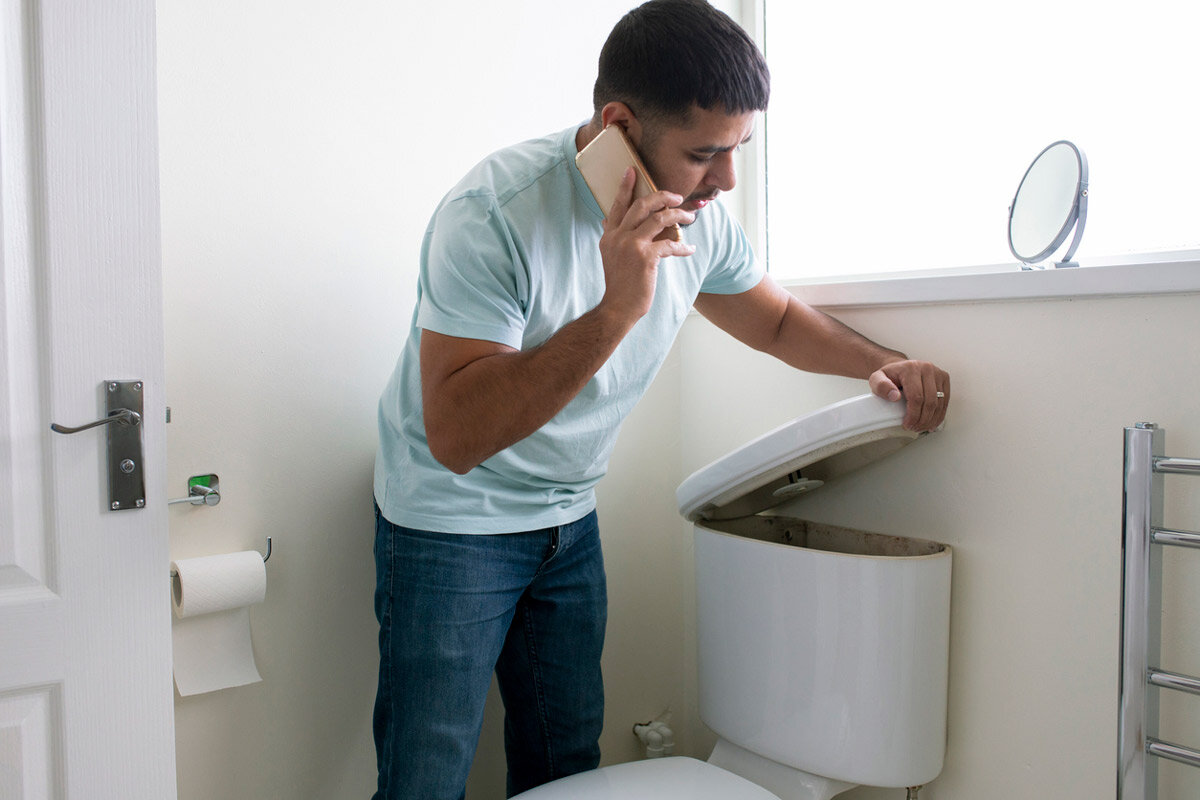Indoor plumbing could rank as one of the best inventions ever — until there's a problem with your plumbing. Whether it's no hot water, the toilet is clogged again, the garbage disposal stinks, or a drain is backed up, plumbing problems are no fun at all. What follows are some residential plumbing repair and troubleshooting tips for common plumbing problems you may encounter.
Residential Plumbing Repair: Intermittent Hot Water
It's happening again: You're taking a shower and the hot water goes off and on — or there's no hot water at all. Before you start to worry about a water heater repair bill, check the circuit breaker to see if a breaker has tripped.
Next, if you have a gas-burning water heater, make sure the gas is turned on to the water heater. For electric water heaters, you may have a broken dip tube or heating element. You'll need to call your plumber for those issues.
Residential Plumbing Repair: Clogged Shower Drain
Shower drain clogs are a common plumbing issue. Many items and factors can contribute to shower drains getting clogged, such as soap scum, hair, mineral deposits, and small items (that missing shampoo cap!). Shower clogs are generally more difficult to remedy than a clogged toilet or kitchen sink. If you can't get rid of the clog with an plumbing auger or plunger, you may need to call a plumber.
Residential Plumbing Repair: Leaky Toilet
A leaky toilet is another common residential plumbing repair. If water is leaking from under the toilet, you have a worn out O-ring, which may be accompanied by sewage odors. Another common leak is at the gasket connection of the toilet tank and toilet. The bolts and gaskets holding the tank to the toilet could be leaking water.
If you are experiencing any of these plumbing problems, locate the water shut-off valve behind the toilet and turn it off. Then, call your trusted plumber, because all of these issues should be handled by a pro.
If you need a professional plumber for residential plumbing repair in your Broken Arrow home, contact us at Air Assurance.


